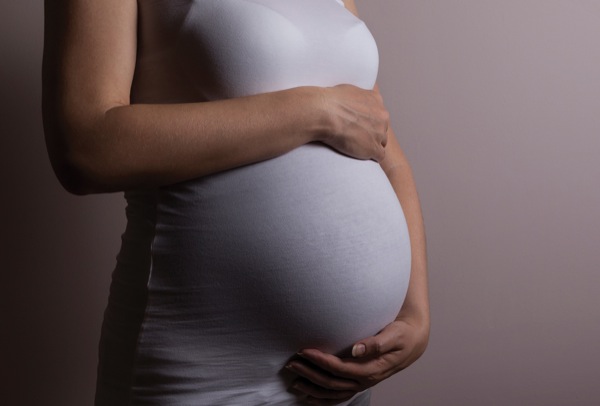Women with inflammatory bowel disease may be at risk for a reduced quality of life, increased symptoms and potentially difficult pregnancies if they conceive while their Crohn’s disease or ulcerative colitis is uncontrolled, new research shows.
The type of IBD and its severity when a woman becomes pregnant appears to influence the course of her disease through pregnancy, with UC patients reporting lower quality-of-life scores and greater risks for disease exacerbation compared with patients having Crohn’s disease.
Just how many women with IBD get pregnant each year is not clear. Approximately 1.6 million Americans have IBD, with diagnosis peaking between 15 and 35 years of age, according to the Crohn’s and Colitis Foundation. The condition generally affects men and women equally. Studies have indicated that having
“There’s a common misconception that people with autoimmune or inflammatory disease always get better during pregnancy,” said Vivian Huang, MD, an assistant professor and a clinical investigator in the Division of Gastroenterology at the University of Toronto. “But more and more evidence suggests that this is not the case.”
In a study presented at the 2018 annual meeting of the European Crohn’s & Colitis Organisation (ECCO; abstract P235), Dr. Huang and her colleagues reported that quality-of-life scores for women with IBD decreased significantly during pregnancy.
Challenges to Quality of Life
Pregnancy can increase the risk for IBD flares, which as Dr. Huang’s research shows, can impair the quality of life for the mother and lead to worse fetal outcomes, including miscarriage, stillbirth or preterm delivery. Despite this, women with IBD should not fear
“Why do we want to control the disease? It’s not just about giving the baby a better chance to go to term and have better outcomes, it’s also because we want to give [the] mom a better quality of life,” Dr. Huang said.
She and her team had noticed a lack of studies on patient concerns or quality of life during pregnancy. So each time a woman came for a visit to the preconception and pregnancy clinic, her team asked a series of questions about
Overall,
“This is why we should emphasize to the patient the importance of controlling their disease activity. It’s not only better for her pregnancy and the outcomes for her baby, but it also makes her quality of life better for those 40 weeks,” she added.
Dr. Huang stressed the need for patient education and shared decision making. Instead of telling the patient to take her medication, a conversation about the potential consequences of noncompliance—while recognizing her worries about medication side effects—is key, she said. She and a team of international colleagues are currently drafting a decision aid for use by
In addition, physiologic tests are critical. Ellen Scherl, MD, the director of the Jill Roberts Center for Inflammatory Bowel Disease at NewYork-Presbyterian Hospital and Weill Cornell Medicine, in New York City, cited a large international study that found patient-reported outcomes do not predict clinical response as well as mucosal healing and fecal calprotectin (Gut 2017;66[12]:2063-2068). “Patients may think their quality of life is better than it actually is,” said Dr. Scherl, who was not involved in either study.
John Marshall, MD, the director of the Division of Gastroenterology at McMaster University in Hamilton, Ontario, said he was not surprised that quality of life suffered among women who developed active disease during pregnancy. “When symptoms increase, quality of life declines,” said Dr. Marshall, who was not part of either study.
He said he generally sees a slightly higher risk for flares after pregnancy, which he attributes to immune tolerance. “You certainly do not want your immune system attacking your child. So it might settle down while you are gestating.”
Type of Disease Matters
In another study presented at the ECCO meeting (abstract P302), Ariella Bar-Gil Shitrit, MD, the head of the IBD MOM unit of the Digestive Disease Institute at Hebrew University of Jerusalem, detailed differences in pregnancy between women with UC and those with Crohn’s.
Her multidisciplinary unit follows IBD patients of reproductive age, at the
Immunology might explain the differences in outcomes, according to Dr. Shitrit. Crohn’s is mediated via the Th1 pathway, whereas UC is a Th2-mediated disease. “During pregnancy, there is a shift toward activation of the Th2 pathway,” she said. Dr. Shitrit advised clinicians to be aware of this difference, explain it to their patients, and closely monitor and treat the disease.
Dr. Huang and her team also found that the reduced quality of life associated with active IBD during pregnancy occurred mainly in women with UC. She, too, noted that Th1 and Th2 balances change during each trimester, and potentially interact with pregnancy hormones. Changes in the microbiome during pregnancy may drive inflammation among women with UC, she added.
Hormonal changes in pregnancy may provide some general protection from IBD. Progesterone, for example, is elevated during pregnancy and reduces inflammation. But even though some patients may improve during pregnancy, Dr. Scherl said, the concern remains that patients with active disease at the time of conception may worsen during pregnancy. “Since we cannot predict which women will improve during pregnancy, we recommend that you try to get the disease under control before conceiving,” she said.
“Most medications used to treat Crohn’s and UC are well tolerated in pregnancy,” Dr. Marshall added. An exception is
“It’s an important message for women on those medications: They should continue on them,” he said. “A greater risk to a child’s outcome is [maternal] disease reactivation, rather than the medications themselves.”
—Lynne


